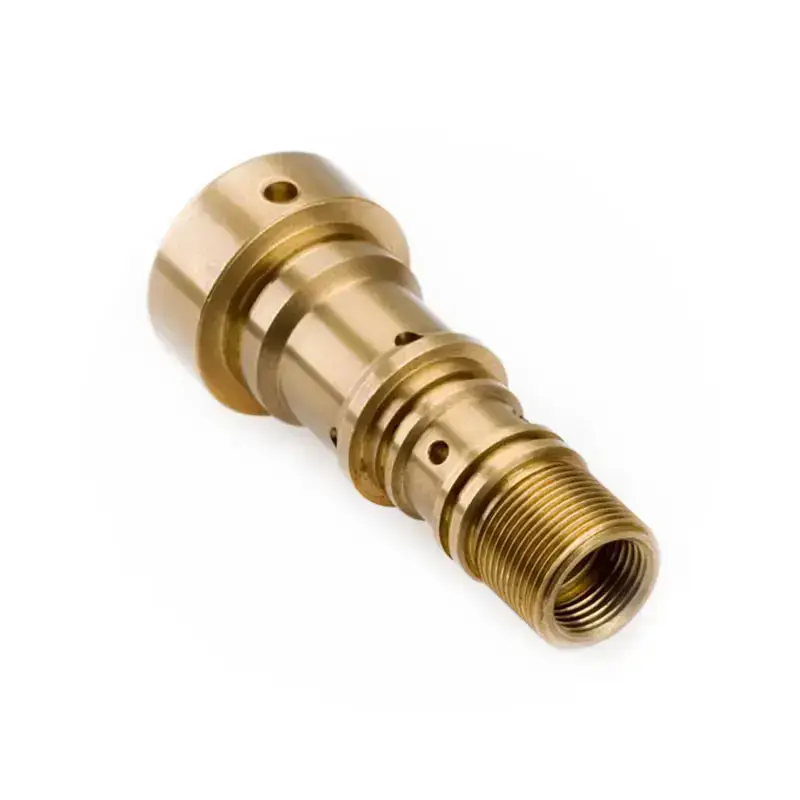Unlocking the Precision of CNC Turned Brass Parts
CNC turning, or computer numerical control turning, is a sophisticated machining process that uses a rotating tool to shape a workpiece. This technology offers several advantages over traditional methods, including higher efficiency, precision, and cost-effectiveness. When applied to brass materials, CNC turning allows for intricate and precise shapes, making it ideal for high-performance applications.
Properties of Brass Materials
Brass, often referred to as an alloy of copper and zinc, is celebrated for its exceptional properties. These include outstanding corrosion resistance, exceptional strength, and excellent conductivity. These characteristics not only enhance the lifespan and performance of brass components but also make it a preferred material for precision components. For instance, in the automotive industry, brass CNC turned components are used in engine parts and accessories, ensuring reliability and performance.

Applications of Brass CNC Turned Components
Brass CNC turned components find extensive use in various industries, each capitalizing on its unique properties and precision. Here are some key applications:
- Automotive Industry: Brass components are used in engine parts, such as pistons and valves, and accessories like steering components. CNC turning ensures that these parts meet exacting standards, contributing to the overall performance and efficiency of vehicles.
Musical Instruments: Brass is a primary material for musical instruments like trumpets and trombones. CNC turned brass parts are essential for precise machining, ensuring the instruments produce the correct tone and tuning.
Medical Devices: Brass components are used in medical devices such as surgical instruments and pump parts. The precision offered by CNC turning ensures that these parts meet the stringent requirements for accuracy and hygiene.
Electronics: In the electronics industry, brass is used for heat sinks, connectors, and shielding components. CNC turned brass parts ensure reliable performance and durability, which is crucial for the operation of electronic devices.
Precision and Tolerance in CNC Turning of Brass
Precision and tolerance are critical when machining brass components. Even minor deviations can affect the performance and functionality of the final product. Factors such as tool wear, coolant usage, and machine settings significantly impact the precision of CNC turned brass parts. For example, a well-maintained tool and a precise CNC program can ensure that the dimensions of a brass component meet tight tolerances. Case studies, such as the production of custom-tuned brass valves for high-end musical instruments, demonstrate how precision machining enhances the quality of the final product.
Quality Assurance in Brass CNC Turning
Quality assurance in brass CNC turning involves stringent testing and inspection protocols to ensure that the components meet precise specifications. Non-destructive testing methods, such as ultrasonic testing and X-ray inspection, are commonly used to check for internal defects. Surface finish analysis and dimensional inspections ensure that the components have the correct dimensions and smooth surfaces. Maintaining high-quality standards is crucial for ensuring that the components function reliably and perform well in their intended applications.
Future Trends in CNC Turned Brass Parts
Emerging trends in CNC turning technology are rapidly transforming the industry. Advancements in software, such as CAD/CAM (computer-aided design and manufacturing), allow for more complex designs and faster production times. Automation is also playing a significant role, with robots and other automated systems improving efficiency and consistency. Sustainable manufacturing practices, such as using recycled materials and reducing waste, are gaining traction, ensuring that the production process is environmentally friendly.
Conclusion
The precision of brass CNC turned components is essential across various industries, driving innovation and performance. From high-end musical instruments to critical medical devices, brass's versatility and CNC turning technology ensure reliability and precision. As the industry continues to evolve, embracing these emerging trends will further enhance the role of brass CNC turned parts in shaping the future of precision manufacturing.
By leveraging the precision of CNC turning technology, manufacturers can ensure that brass components meet the highest standards of performance and reliability, making them indispensable in today's technologically advanced world.
